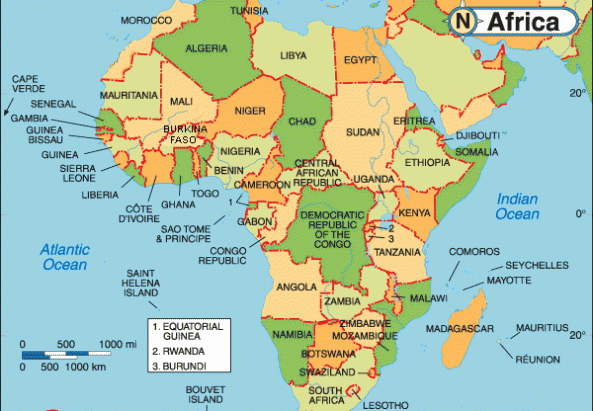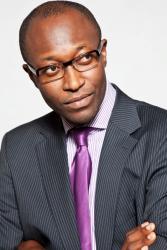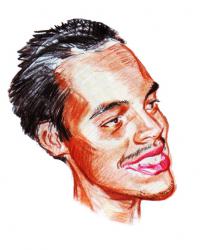Celestin Monga: Africa’s four Deficits

29.04.2004 | 12:15 | REDAKTION
It would be good if the industrialized countries could, for instance, cancel the external debt of our countries, or massively finance carefully designed infrastructure programs with good economic return. But such actions will have limited impact if they are not part of locally conceived strategies to build communities, restore the ethics of leadership, and create the kind of educational systems that value knowledge, learning, and organizationational skills.
I am afraid to say that for the foreseeable future, it is very likely that many of the large countries that can serve as anchors and engine of Sub-Saharan Africa development will remain trapped in political strife, institutional poverty, intellectual misery, social and moral bankruptcy. I simply do not share the current, politically correct optimism, which everyone feels compelled to endorse. The official optimism is often based on fuzzy statistics about macroeconomic stabilization or on the hypocrisy of low expectations for our people.
Incrementalism is not the solution to our current problems. To the contrary, we need the kind of big bang type of approach that shook Central and Eastern Europe in 1989 when the Berlin Wall came down, allowing most of them to recreate and re-legitimate their institutions, rejuvenate their public sphere, stimulate the public conversation on the appropriate course of history and the meaning of their people’s lives. Despite a difficult initial period of transition, most of them have done very well in a decade, and ten of them have made enough political, economic, and social changes to be able to join the European Union this year. Before such swift turnaround can happen in Africa, we must better understand what our real problems are, and not simply attempt to deal with their superficial symptoms.
It is easy to list all kind of technical reasons (historical, political, economic, and social) why Africa has been performing so poorly over the past several hundred years. Centuries of oppression obviously did not help, especially its worse and most traumatic form: slavery and its psychological legacy. Oppression took away not only labor and resources from our continent but also our human-ness and sense of dignity. Recent political history has compounded the problems: most of the continent has been badly ruled and poorly managed for too long by gangs of illiterate dictators who enjoyed broad support from the so-called international community. Elections-almost always flawed-have not brought to power the kind of new, bold and confident leadership that would have taken us in a different direction. Economic policies have been erratic, ad hoc, some times imposed from the outside by „experts“ who have little understanding of the context, or no interest in our problems. These policies have not created a favorable environment for investment and growth. Poor social indicators (in education, health, and gender profile) have limited human capital, a pre-requisite to any meaningful development.
However today, these well-known initial causes may in fact have become the symptoms of African underdevelopment. I now see two major explanations of the current problems in Africa, both of them of psychological nature: the deep deficit of self-esteem and confidence that too many people suffer on our continent (regardless of their social status or background); and the immense contempt by the outside world towards Africa. These two structural explanations are self-reinforcing and translate into four big social deficits:
• A deficit of self-esteem probably a relic of four centuries of slavery, colonialism, and post-colonialism. Indeed, the main problem facing Africa today is the fact that most people there are clinically depressed and do not even realize it. This obviously distorts the reality they see, and determine their actions (or inaction). In the Congo there is a very popular belief called „Article 15“ which stipulates: „Débrouillez vous!“ It refers to an imaginary clause of the Constitution providing that it is OK for every citizen to do whatever necessary to get by…
• A deficit of knowledge and learning partly due to fear of the destruction of African cultural systems and cosmogonies, and their replacement by various faith-based healing systems and self-fulfilling prophecies. Our fear or contempt for science and technology is a major contributing factor to this.
• A deficit of leadership due to the weakness of civil society institutions, the short supply of respect for the public good, the lost of idealism, and the prevailing distorted value system. Many students tend to show more admiration for international thieves („Feymen“ as they are called in Cameroon), than for their teachers-it is true that some teachers do not deserve admiration…
• A deficit of communication, itself compounded by the lack of a conflict resolution culture at all levels of the society. Too often, our inability to understand the dynamics of conflicts or to resolve them in a way that would be beneficial to all parties, and our inability to properly relate to each other (especially inside the most basic social unit which is the African family) are major obstacles to any democratic and economic development strategy.
The biggest problem that these four deficits have brought to our continent is probably the weakening of families and communities, and the validation of individualism. This may come as a shock to you. But after traveling the world and observing other societies and cultures, I am sorry to confess that Africa may be the most individualistic place on earth.
What can be done? Between now and 2015, many African countries could do what China, Malaysia, Costa Rica, Chile, Mauritius or Tunisia have done over the past fifteen years, that is managing their economies to grow at least 8 percent per year. That would still not be enough to eradicate massive poverty but at least, it would put our continent back on the map of world affairs and-most important-contribute to the restoration of our self-confidence and sense of collective dignity.
Some of the specific institutional requirements and policy prescriptions that would take us there are summarized in any recent report from the African Development Bank or the World Bank. The big question is how to get our acts together in order to implement them, and to force the reluctant Western world to give us the respect we deserve. In other words, how to overcome the deep wounds that have affected our psyche for such a long time and destroyed our value systems? How do we teach people to believe in themselves and not in what Western media says about us? How do we change our belief systems so that as a society, we can set our own objectives, design own paths towards these, and consistently take the actions necessary to get there? How do we instill the critical spirit in the management of our daily lives? How do we escape from the propensity to give blind faith in exotic magical formulae for happiness? How do we stop expecting that political leaders will become Messiahs? How do we reclaim our sense of pride, hard work, and excellence in public service? How do we convince ourselves that self-confidence, self-respect, strong families and communities are the most important tools we need in order to change our destiny? How do we overcome anger and disillusionment? How do we address collective depression? How do we get away from humiliation, self-inflicted wounds and self-destruction? How do we free ourselves from cultural alienation? How do we keep hope alive?
An economist like myself is probably not equipped to adequately answer these questions. All I can say is that the answers must focus on three important goals: First, changing the philosophy and curricula of education so that African students can reclaim their self-esteem, dignity, pride, confidence, and sense of duty and responsibility for their country. They should be taught to believe in their creative potential, and in their capacity to create a better future. Second, ensuring that the political systems in place allow for people to elect and change their leaders on a regular basis. One good election or one „new“ President is not enough. It is crucial to ensure that African voters can hire and fire their leaders-thereby correcting their mistakes when they elect populist or incompetent leaders. Third, instilling meritocracy and respect in the public service.
Those tasks-which are really about institutional building-are to be carried out by Africans themselves. Sure, the outside world can help. But its contribution can only be marginal. Of course, it would be good if the industrialized countries could, for instance, cancel the external debt of our countries, or massively finance carefully designed infrastructure programs with good economic return. But such actions will have limited impact if they are not part of locally conceived strategies to build communities, restore the ethics of leadership, and create the kind of educational systems that value knowledge, learning, and organizationational skills. A daunting task, but one we can handle.
Celestin Monga Lead Economist, Europe and Central Asia, World Bank
© 2004 Royal African Society
Kommentieren Sie den Artikel
Weitere Artikel von REDAKTION
- Presserat mahnt zu Zurückhaltung bei der Nennung der Herkunft von Straftätern
- Opencities zeigt ein multikulturelles Wien
- Einmalig: simon INOU im österreichischen Schulbuch der 8. AHS Stufe
- Black Austrians design antiracist logo for a Vorarlberger brewery
- Entscheidung des Presserats: „Schwarze Frau schlägt weißes Kind“ Zeichnung im Falter






